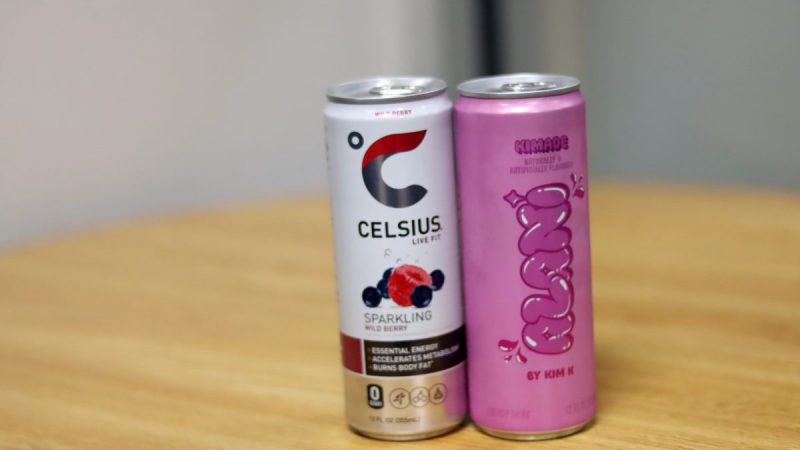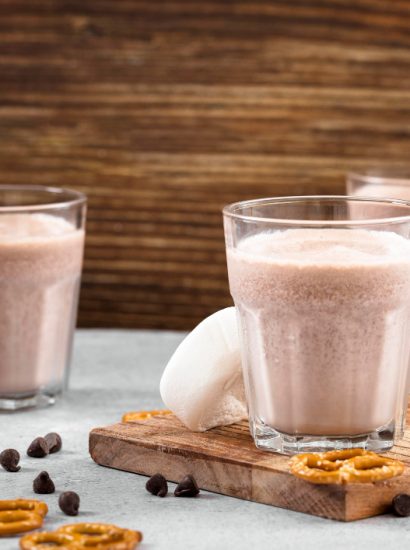The demand for energy drinks has surged in recent years, with brands like Alani Nu and Celsius leading the way. Both promise an energy boost, improved focus, and better performance — but they achieve it through different formulas and brand philosophies. Whether you’re an athlete, gym-goer, or busy professional, choosing the right energy drink matters for your health and daily routine.
In this article, we’ll explore Alani vs Celsius in depth, breaking down their ingredients, flavors, caffeine content, benefits, and potential side effects. By the end, you’ll know which one suits your body and lifestyle best.
Overview of Alani Nu Energy Drink
Alani Nu Energy is a popular brand known for its clean ingredients and lifestyle-friendly marketing, especially among fitness enthusiasts and health-conscious consumers. It’s sugar-free, gluten-free, and designed to provide a balanced energy lift without jitters or crashes.
Alani Nu contains 200 milligrams of caffeine per can, sourced from natural caffeine, along with vitamins and amino acids like L-theanine for focus and calm energy. It’s marketed primarily to people who want a lighter, smoother boost — not an extreme caffeine rush.
Overview of Celsius Energy Drink
Celsius Energy is marketed as a fitness drink that boosts metabolism and supports active lifestyles. It’s often categorized as a “thermogenic” drink because it claims to help burn calories while providing an energy lift.
Each can of Celsius typically contains 200 milligrams of caffeine, similar to Alani, but it also includes a proprietary blend called the MetaPlus formula, which features ingredients like green tea extract, guarana, taurine, and ginger root.
Celsius promotes itself as a performance-enhancing beverage for athletes and gym-goers looking to maximize workouts.
Ingredients Comparison
Both Alani and Celsius focus on providing energy without sugar, but their ingredient profiles differ in purpose and complexity.
Alani Nu Energy includes:
- Natural caffeine (200 mg)
- L-theanine for mental focus
- B vitamins (B3, B6, B12) for metabolism support
- Electrolytes for hydration
- No sugar or artificial coloring
Celsius Energy includes:
- Natural caffeine from green tea and guarana
- Taurine for endurance
- Ginger root extract and chromium for metabolism support
- B vitamins and vitamin C
- MetaPlus blend for thermogenesis
In essence, Alani focuses on smooth, clean energy, while Celsius leans into fat-burning and performance enhancement.
Caffeine and Energy Effect
Both Alani and Celsius contain around 200 mg of caffeine, equal to about two strong cups of coffee. However, how you feel after drinking them can differ.
Alani’s blend with L-theanine helps balance caffeine’s stimulating effect. This combination promotes alertness without anxiety or crashes. It’s a great choice for people sensitive to caffeine or who want a stable energy curve throughout the day.
Celsius, on the other hand, provides a sharper, more intense energy boost. Its thermogenic properties increase heart rate and body temperature slightly, which some users find energizing but others may find too stimulating, especially on an empty stomach.
Taste and Flavor Variety
Taste is a major factor for many energy drink fans, and both brands deliver unique experiences.
Alani Nu is known for its light, fruity, and sweet flavors like Cosmic Stardust, Breezeberry, and Mimosa. The flavors are crisp and refreshing without a chemical aftertaste, appealing to those who prefer a “fun” and flavorful drink.
Celsius offers fruit-based flavors such as Sparkling Orange, Watermelon, and Peach Vibe. Its taste is slightly more natural and less sweet, with a bit of a tea-like aftertaste due to its herbal ingredients.
If you enjoy a smoother, candy-like flavor, Alani wins. For those who prefer a more natural, fitness-oriented taste, Celsius is ideal.
Health and Nutrition Impact
When it comes to overall health, both drinks perform well compared to traditional sugar-filled energy beverages. Neither contains sugar, artificial preservatives, or aspartame. However, there are some differences.
Alani Nu focuses on being clean and minimalistic, making it suitable for people who want an energy boost without added metabolism boosters. It’s gluten-free and vegan-friendly, appealing to those with dietary restrictions.
Celsius is designed for fat burning and workout performance. It’s also sugar-free and low-calorie but includes thermogenic ingredients that may not suit everyone, especially those with caffeine sensitivity or certain medical conditions.
Both can fit into a balanced lifestyle, but moderation is key.
Performance and Workout Use
For gym-goers and athletes, energy drinks often double as pre-workout supplements.
Alani Nu provides a smooth, focused boost that enhances endurance without overstimulation. It’s ideal for morning workouts, yoga sessions, or long workdays.
Celsius, being a thermogenic beverage, increases body temperature and metabolism. This makes it excellent for cardio, HIIT, or weight training sessions where fat burning and stamina are priorities.
If your goal is steady focus and energy, Alani may be better. If you want calorie-burning support and an intense kick, Celsius is more effective.
Possible Side Effects
Even though both drinks are marketed as clean and safe, overconsumption can lead to side effects, especially due to high caffeine content.
Common side effects include:
- Rapid heartbeat
- Insomnia or restlessness
- Headaches
- Digestive discomfort if consumed on an empty stomach
Alani tends to cause fewer jitters because of its balanced ingredients. Celsius, due to its thermogenic formula, can feel stronger and might not suit those with caffeine sensitivity. It’s always wise to drink these beverages in moderation and stay hydrated.
Price and Availability
Both Alani and Celsius are widely available in stores and online, including grocery chains, gyms, and e-commerce platforms.
On average, Alani Nu costs around 2 to 3 dollars per can, while Celsius ranges from 2.50 to 3.50 dollars, depending on the variety and purchase location.
Celsius offers more options in multi-can packs and larger availability globally, while Alani has a strong presence in the U.S., particularly in fitness-focused retailers.
Conclusion
So, which energy drink is better — Alani or Celsius? The answer depends on your personal needs and preferences.
- Choose Alani Nu if you want a clean, smooth, and balanced energy boost with great flavor and minimal side effects. It’s ideal for daily use, work, or moderate workouts.
- Choose Celsius if you’re looking for a more intense, performance-driven energy drink that helps with metabolism and fat burning during workouts.
Both are healthier alternatives to traditional sugary energy drinks, but it’s best to consume them responsibly. Whether you’re powering through a workout or a busy workday, the key is balance, hydration, and listening to your body.
FAQs
1. Is Alani Nu better than Celsius for workouts?
Celsius is more effective for high-intensity workouts due to its thermogenic ingredients, while Alani offers a smoother boost suited for moderate activity or focus.
2. Do Alani and Celsius have the same caffeine amount?
Yes, both contain around 200 milligrams of caffeine per can, equivalent to about two cups of coffee.
3. Which energy drink is healthier overall?
Alani Nu is slightly healthier for daily use since it’s gentler on the body and has fewer thermogenic additives.
4. Can I drink Alani or Celsius every day?
Occasional daily use is fine for most people, but excessive caffeine intake can lead to dependency or side effects. Always stay within safe daily caffeine limits.
5. Are both Alani and Celsius sugar-free?
Yes. Both are sugar-free and use alternative sweeteners like sucralose, keeping calorie counts low without compromising flavor.
Also read: Drago Backpack Review – Durable, Tactical, and Built for Every Adventure









